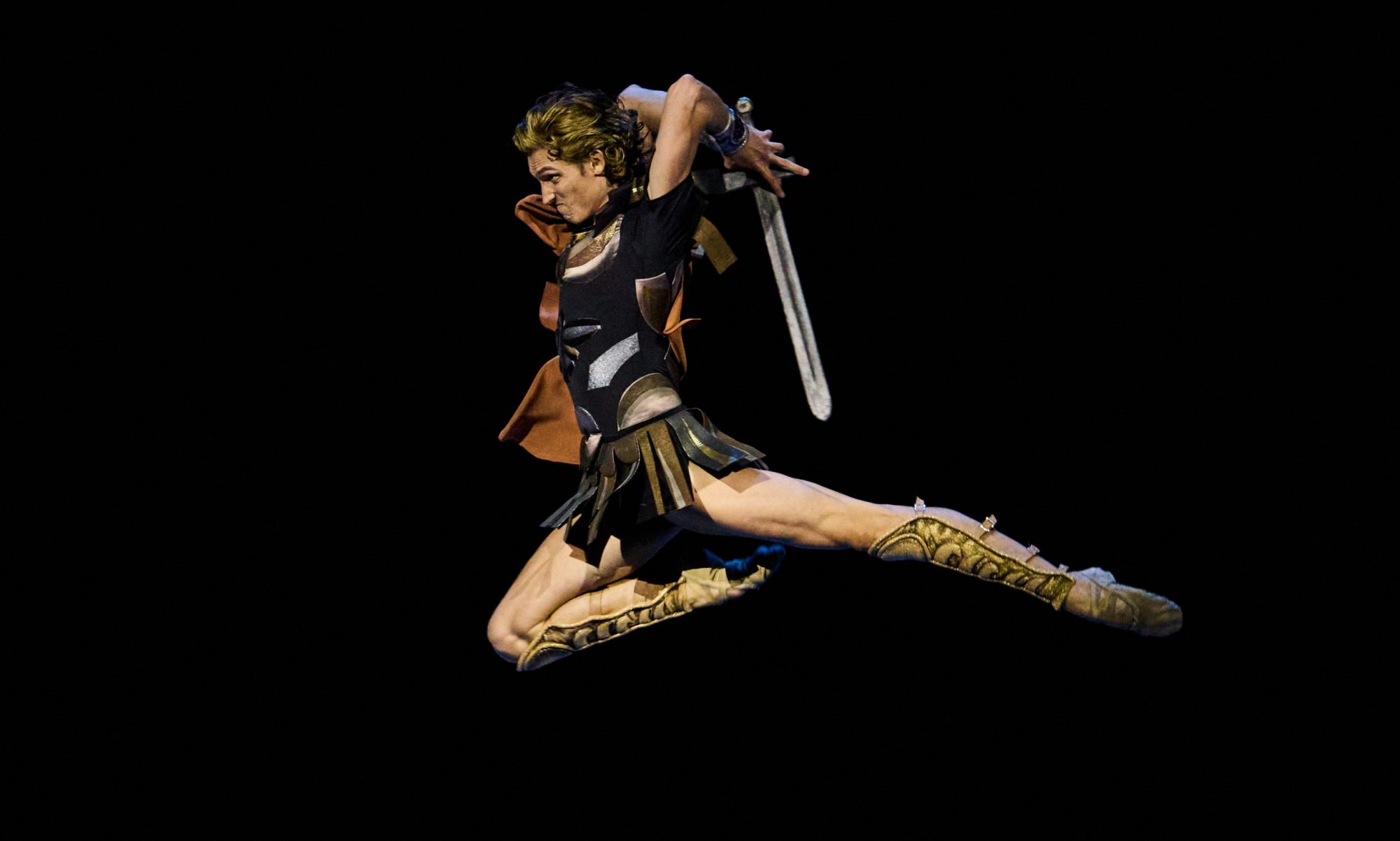“The Kabuki”
The Tokyo Ballet
Stuttgart State Opera
Stuttgart, Germany
June 08, 2014
by Ilona Landgraf
Copyright © 2014 by Ilona Landgraf
 The Tokyo Ballet toured Stuttgart on June 7th and 8th with one of their core repertory pieces, Maurice Béjart’s “The Kabuki”, a dance-drama created for the troupe in 1986. The plot is based on the Japanese national myth “The Revenge of the 47 Ronin”, events which took place between 1701 – 1703 during the Edo period. The term ‘Ronin’ means ‘masterless samurai’ due to the master’s death or the loss of the master’s favor or privilege.
The Tokyo Ballet toured Stuttgart on June 7th and 8th with one of their core repertory pieces, Maurice Béjart’s “The Kabuki”, a dance-drama created for the troupe in 1986. The plot is based on the Japanese national myth “The Revenge of the 47 Ronin”, events which took place between 1701 – 1703 during the Edo period. The term ‘Ronin’ means ‘masterless samurai’ due to the master’s death or the loss of the master’s favor or privilege.
It’s an intricate story set in the circles of the Shogun. Morono, a high-level officer of the Shogun, is rejected by Lady Kaoyo, the wife of Lord Enya Hangan. Out of wounded vanity he starts to quarrel with the husband. Enya Hangan finally loses his temper and attacks the womanizer, earning more than he bargained for. Provoking fights inside the palace is forbidden and is punished with the stipulation to commit Seppuku, ritual suicide through disembowelment. He also has to dissolve his clan. Having no choice, he took his own life. Continue reading “Tradition made spectacular”

